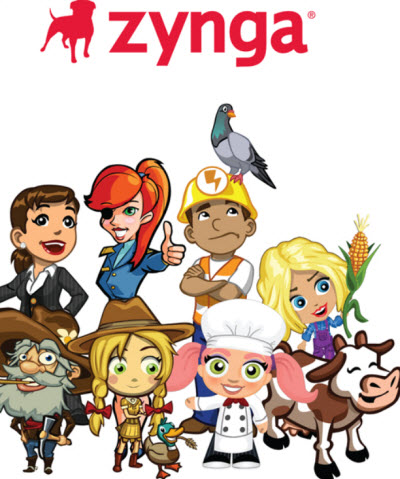
The numbers show that Facebook and Zynga have intertwined fates, with both depending on the other for revenues. Zynga, however, is more dependent, as about 90-percent-plus of its revenues are generated on the Facebook platform.
[aditude-amp id="flyingcarpet" targeting='{"env":"staging","page_type":"article","post_id":385285,"post_type":"story","post_chan":"none","tags":null,"ai":false,"category":"none","all_categories":"games,social,","session":"C"}']Zynga has more than 235 million monthly active users on Facebook. Those players play social games such as FarmVille and CityVille for free, but they can purchase virtual goods with real money. About 30 percent of those revenues goes to Facebook, which charges a transaction fee for the use of its Facebook Credits virtual currency.
Zynga also generates revenue for Facebook by purchasing ads on the network to promote its social games. Zynga, along with Electronic Arts and Disney, purchase “performance-based ads” on Facebook to capture new players.
AI Weekly
The must-read newsletter for AI and Big Data industry written by Khari Johnson, Kyle Wiggers, and Seth Colaner.
Included with VentureBeat Insider and VentureBeat VIP memberships.
Facebook has said in the past that if the use of Zynga games on its platform declines, if Zynga launches games on other platforms, or if Facebook fails to maintain good relations with Zynga, then Facebook’s revenues may get hurt.
The companies have had their differences in the past. In May of last year, Facebook began requiring Zynga to pay the 30-percent transaction fee for Facebook Credits. That hurt Zynga’s profits, and it started diversifying beyond Facebook after that. But the two companies have since patched things up, and Zynga is still heavily focused on Facebook, which has 800 million users.
While Facebook gets revenue from a variety of sources, it has said, “Games from Zynga have generated the majority of our payments and other fees revenue.” Social games account for just about all of the payments revenue. Zynga declined comment.
VentureBeat's mission is to be a digital town square for technical decision-makers to gain knowledge about transformative enterprise technology and transact. Learn More
